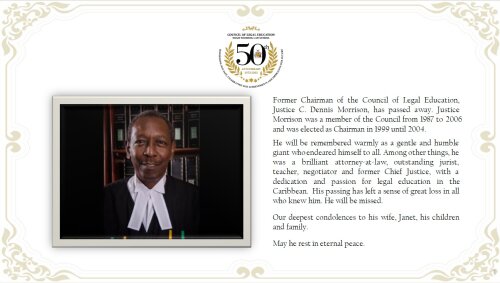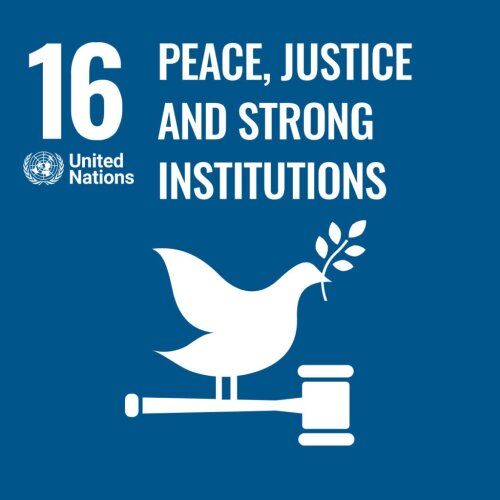Best Juvenile Law Lawyers in Trinidad and Tobago
Share your needs with us, get contacted by law firms.
Free. Takes 2 min.
Or refine your search by selecting a city:
List of the best lawyers in Trinidad and Tobago
About Juvenile Law in Trinidad and Tobago
Juvenile Law in Trinidad and Tobago is the branch of law that deals with matters concerning individuals who are considered minors under the age of 18. The primary focus of Juvenile Law is on the rehabilitation and protection of young persons who come into conflict with the law. The Juvenile Court system in Trinidad and Tobago is designed to prioritize the best interests of the child and promote their overall well-being.
Why You May Need a Lawyer
There are various situations where you may need a lawyer specializing in Juvenile Law in Trinidad and Tobago. Some common instances include when a minor is accused of committing a criminal offense, when there are issues related to child custody or guardianship, or when there are concerns about the welfare of a child. A Juvenile Law lawyer can provide legal advice, representation in court, and help navigate the complexities of the legal system.
Local Laws Overview
In Trinidad and Tobago, the Children Act of 2012 is the primary legislation that governs matters related to juvenile justice, child protection, and adoption. The Act establishes the framework for the juvenile justice system and outlines procedures for dealing with children in conflict with the law. Additionally, other laws such as the Family Law Act and the Maintenance Act may also be relevant in cases involving minors.
Frequently Asked Questions
1. What is the age of criminal responsibility in Trinidad and Tobago?
The age of criminal responsibility in Trinidad and Tobago is 12 years old.
2. Can a minor be sentenced to prison in Trinidad and Tobago?
Minors in Trinidad and Tobago cannot be sentenced to prison. Instead, the focus is on rehabilitation and reintegration into society.
3. What are the options for minors in conflict with the law in Trinidad and Tobago?
Minors in conflict with the law in Trinidad and Tobago may be referred to diversion programs, counseling, or community service instead of facing formal court proceedings.
4. Can a minor be tried as an adult in Trinidad and Tobago?
In certain circumstances, minors in Trinidad and Tobago can be tried as adults, such as for serious offenses like murder or manslaughter.
5. How does the Juvenile Court system work in Trinidad and Tobago?
The Juvenile Court system in Trinidad and Tobago is specialized to deal with cases involving minors. The court aims to protect the child's rights and ensure their best interests are prioritized.
6. What rights do minors have in Trinidad and Tobago?
Minors in Trinidad and Tobago have the right to legal representation, privacy, and protection from abuse and neglect.
7. How can a lawyer help in a child custody case in Trinidad and Tobago?
A lawyer specializing in Juvenile Law can provide advice on child custody laws, help negotiate custody arrangements, and represent the child's interests in court.
8. What are the consequences of child abuse in Trinidad and Tobago?
Child abuse in Trinidad and Tobago is a criminal offense and can result in penalties such as fines or imprisonment. The Child Protection Unit investigates reports of child abuse and takes action to protect the child's welfare.
9. What are the requirements for adopting a child in Trinidad and Tobago?
Adoption in Trinidad and Tobago is governed by the Adoption of Children Act. Prospective adoptive parents must meet certain criteria and go through a legal process to finalize the adoption.
10. How can I report child abuse or neglect in Trinidad and Tobago?
If you suspect a child is being abused or neglected, you can report it to the authorities, such as the Child Protection Unit, the police, or a child welfare organization.
Additional Resources
For more information on Juvenile Law in Trinidad and Tobago, you can contact the Children's Authority, the Legal Aid Authority, or a reputable law firm specializing in Juvenile Law.
Next Steps
If you require legal assistance in Juvenile Law in Trinidad and Tobago, it is advisable to consult with a qualified lawyer who has experience in this field. They can provide guidance on your specific situation and help you navigate the legal process effectively.
Lawzana helps you find the best lawyers and law firms in Trinidad and Tobago through a curated and pre-screened list of qualified legal professionals. Our platform offers rankings and detailed profiles of attorneys and law firms, allowing you to compare based on practice areas, including Juvenile Law, experience, and client feedback.
Each profile includes a description of the firm's areas of practice, client reviews, team members and partners, year of establishment, spoken languages, office locations, contact information, social media presence, and any published articles or resources. Most firms on our platform speak English and are experienced in both local and international legal matters.
Get a quote from top-rated law firms in Trinidad and Tobago — quickly, securely, and without unnecessary hassle.
Disclaimer:
The information provided on this page is for general informational purposes only and does not constitute legal advice. While we strive to ensure the accuracy and relevance of the content, legal information may change over time, and interpretations of the law can vary. You should always consult with a qualified legal professional for advice specific to your situation.
We disclaim all liability for actions taken or not taken based on the content of this page. If you believe any information is incorrect or outdated, please contact us, and we will review and update it where appropriate.
Browse juvenile law law firms by city in Trinidad and Tobago
Refine your search by selecting a city.











